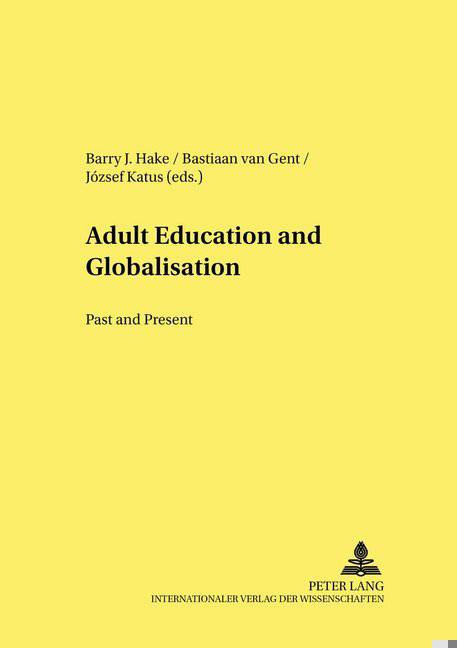
- Afhalen na 1 uur in een winkel met voorraad
- Gratis thuislevering in België vanaf € 30
- Ruim aanbod met 7 miljoen producten
- Afhalen na 1 uur in een winkel met voorraad
- Gratis thuislevering in België vanaf € 30
- Ruim aanbod met 7 miljoen producten
Zoeken
Adult Education and Globalisation
Past and Present: The Proceedings of the 9 th International Conference on the History of Adult Education
Paperback | Engels | Studien Zur Pädagogik, Andragogik Und Gerontagogik / Studies In Pedagogy, Andragogy, And Gerontagogy | nr. 57
€ 73,95
+ 147 punten
Omschrijving
This volume comprises an edited selection of papers which were originally presented at the 9th International Conference of the History of Adult Education that was held in Leiden in September 2002. The theme of that conference and this volume addresses the key dynamics associated with the impact of globalisation upon both the historical and contemporary development of the organisation of adult learning. Following a general introduction to the key themes by the chief editor, the first section of the volume comprises a number of papers of a distinctly historical nature. The focus in this section is upon the development of organised adult learning as a major component of the European modernisation project from the Enlightenment period in the eighteenth century to the twentieth century. The second section examines contemporary developments and the emergence of new forms for the organisation of adult learning in the learning society. The emphasis here is upon those societal developments that contribute to the centrality of lifelong learning in current education and training policies. The third section comprises a number of country studies focused upon the dilemmas associated with the restructuring of national education and training policies. Issues of social inclusion and the risk of exclusion form the recurring theme of these country studies.
Specificaties
Betrokkenen
- Uitgeverij:
Inhoud
- Aantal bladzijden:
- 308
- Taal:
- Engels
- Reeks:
- Reeksnummer:
- nr. 57
Eigenschappen
- Productcode (EAN):
- 9783631528174
- Verschijningsdatum:
- 13/07/2004
- Uitvoering:
- Paperback
- Formaat:
- Trade paperback (VS)
- Afmetingen:
- 148 mm x 210 mm
- Gewicht:
- 381 g

Alleen bij Standaard Boekhandel
+ 147 punten op je klantenkaart van Standaard Boekhandel
Beoordelingen
We publiceren alleen reviews die voldoen aan de voorwaarden voor reviews. Bekijk onze voorwaarden voor reviews.










